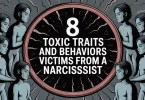Why Do Narcissists Self-Destruct? As their own worst enemies with their manipulative and self-serving actions, narcissists destroy themselves and end up isolated and in loss. There are three main reasons why narcissists are their own worst enemies: they burn bridges, they’re greedy, and careless with their health.
Reason 1: Burning Bridges
Narcissists are skilled at creating superficial connections to serve their need for “supply” attention, admiration, or resources. They are often charming to outsiders, not out of genuine kindness, but for strategic reasons:
- Future Exploitation: Narcissists network constantly, cultivating relationships they can exploit later.
- Image Management: They maintain a facade of being the “nice guy” to contrast with their victims, whom they may portray as the problem.
However, their manipulative tactics eventually backfire. Narcissists believe they can fool everyone with their charm, but their true nature is revealed over time. Victims, once educated about tactics like gaslighting and blame-shifting, begin to see through the narcissist’s facade and distance themselves.
Narcissists also struggle to maintain close friendships because they are unreliable. They make empty promises, offering help but failing to follow through. For example, a covert narcissist might say, “Call me if you need anything,” only to ghost when called upon. Over time, people recognize this inauthenticity, leading to broken trust and severed connections.
As a result, narcissists burn bridges with friends, family, and ex-partners. They try to keep “branches” open to former partners for future manipulation, but as people recognize their toxicity, they cut contact entirely. This pattern often leaves narcissists isolated, especially later in life, as their network of supply dwindles.
Related Topics:
7 reasons you’re easy to manipulate
10 Ways the Narcissist’s Demonic Spirit Tries to Destroy You
7 Narcissistic Behaviours That Seem Normal but Are Toxic
Long-Distance Relationships and New Supply
Narcissists often favor long-distance relationships because they offer less accountability. They can hide their true behavior from someone who cannot easily verify their actions. Additionally, when narcissists exhaust local sources of supply, having manipulated or alienated everyone in their immediate circles, they turn to social media or other cities to find new targets. They may love-bomb someone in a new location to secure a place to stay or resources, only to discard that person once established. However, as more people recognize their toxic patterns, narcissists lose these connections too.
Reason 2: Greed
The second major reason narcissists destroy themselves is their insatiable greed. For many narcissists, money is the ultimate form of supply. While they may easily find sexual partners in today’s hookup culture, financial gain is often their primary goal. They seek partners who can provide financial stability, a place to live, or business opportunities.
This greed manifests in various ways:
- Exploiting Relationships: Narcissists may manipulate partners into giving them money or resources, especially in international relationships where one party is unaware of the narcissist’s true intentions.
- Never Satisfied: No amount of money or resources is ever enough. Even if they secure a wealthy partner, narcissists remain unhappy due to an internal void rooted in deep-seated insecurity and unresolved trauma. They project this dissatisfaction onto their partners, blaming them for their unhappiness.
This constant pursuit of “more” leads narcissists to abandon good relationships in search of something better, only to find that the grass isn’t greener. They lose loyal partners and valuable resources because of their inability to appreciate what they have.
Covert Narcissists as Thieves
Covert narcissists, in particular, may resort to outright theft if they believe they can get away with it. Like career criminals, they may succeed for a while, but the longer they engage in deceit, the higher the chance they’ll get caught. Whether it’s stealing money, cheating in relationships, or lying, their greed overextends their schemes, leading to exposure and consequences.
For example, a narcissist in a marriage might seek excitement through secret affairs or online flirtations, only to be exposed by a third party. This can lead to divorce, legal battles, and financial loss, further destabilizing their lives. Their greed-driven actions alienate partners, children, and others, leaving them with fractured families and no genuine support system.
Reason 3: Neglecting Their Health
The third way narcissists destroy themselves is through reckless disregard for their health. Their pursuit of excitement and instant gratification often leads to destructive behaviors:
- Promiscuity: Many narcissists engage in risky sexual behavior, increasing their chances of contracting STDs or other health issues.
- Substance Abuse: To cope with their inner emptiness, some narcissists turn to drugs or alcohol, which takes a toll on their bodies.
- Neglect of Self-Care: Narcissists often run themselves ragged, neglecting sleep and proper care. This leads to ailments like sleep apnea, digestive issues, or high blood pressure.
When younger, narcissists may ignore health issues, only to become hypochondriacs later in life when their bodies start to fail. The cumulative stress of their toxic behavior, combined with the projection of that stress onto others, further deteriorates their health. Chronic stress raises cortisol levels, impacting both the narcissist and those around them.
Ironically, narcissists may display temporary humility when health issues arise, seeking sympathy or support. However, once they recover, they often revert to their toxic behaviors, further alienating those who might have helped them.
Narcissists destroy themselves through a cycle of self-inflicted consequences. They burn bridges by manipulating and alienating others, leaving them isolated. Their greed drives them to overstep boundaries, leading to exposure and loss. Finally, their reckless lifestyles and neglect of health result in physical and mental deterioration. As the saying goes, “You reap what you sow,” and for narcissists, their toxic behaviors ensure their eventual downfall.







Leave a Comment